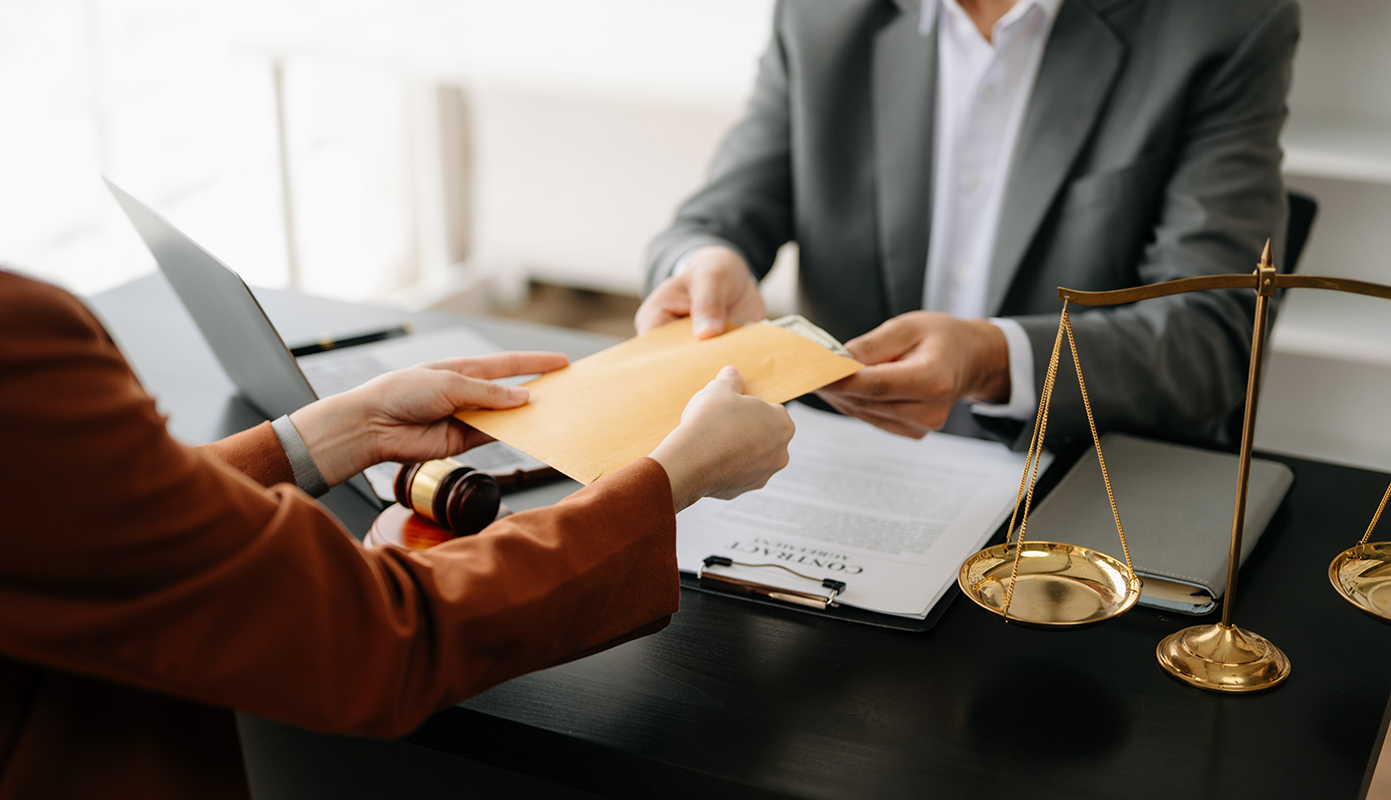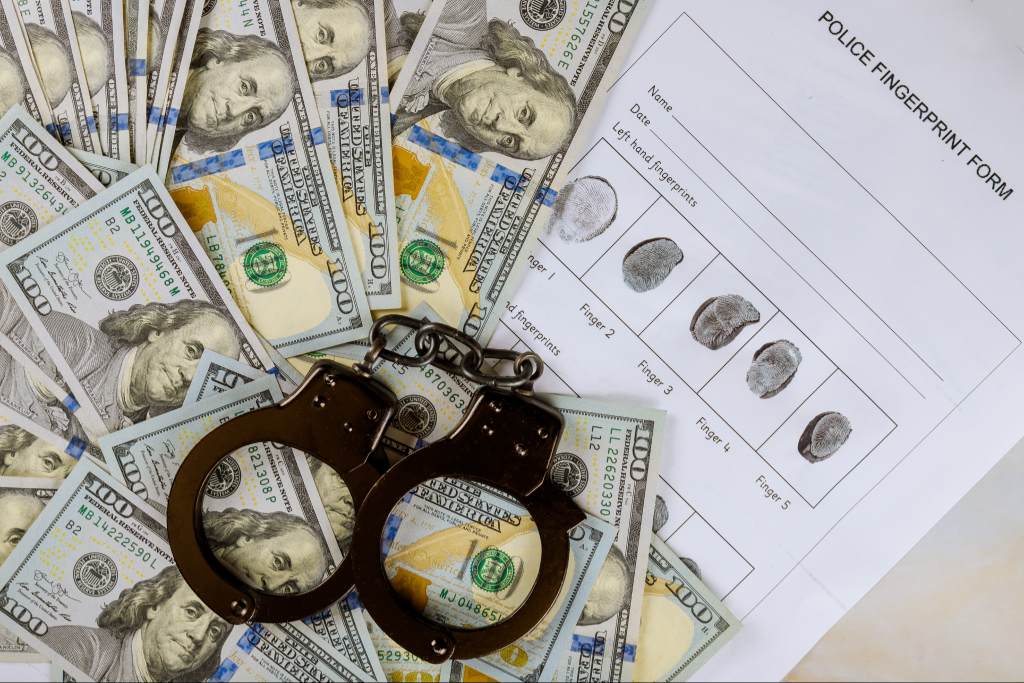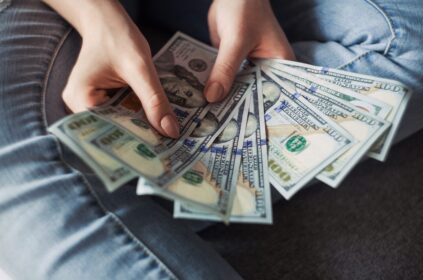Do you get bail money back after posting bond? The question hits hard since the average American can’t cover a $1,000 emergency, let alone pull together tens of thousands in cash with little notice. Your chances of getting a refund depend on your payment method and whether you followed all court requirements.
The good news about getting bail money back if found guilty comes with a simple rule. Paying the full amount straight to the court guarantees a refund after the case ends, whatever the verdict, provided you showed up for all court dates. But using a bail bondsman means you won’t see that 10 percent fee again. Missing just one court appearance could cost you the entire bail amount.
Smart financial decisions during legal troubles need a clear picture of the bail refund system. People who ask about getting their bail money back should know the process takes 2 to 6 weeks. This piece lays out the facts about bail refunds, required conditions, and what happens to your money under different circumstances.

Understanding How Bail Works
The legal system uses bail as a financial guarantee to make sure people show up for their court dates while they wait for trial. You might wonder if you can get your bail money back. The answer changes based on the type of bail you use and how well you follow the court’s rules.
What is bail and why is it required?
Bail works as a financial promise that lets you stay free until your trial is over. Many people think bail is a punishment, but that’s not true. The courts use it to make sure you come back for all your court dates.
The bail system helps solve a big challenge in criminal justice. Courts need to protect your right to be innocent until proven guilty while making sure you show up to court. Local jails held about 630,000 people every day in 2020. Most of these people hadn’t been found guilty of any crime.
The courts would face a tough choice without bail. They’d have to either keep everyone locked up or let everyone go with no reason to come back. Bail creates a better solution that gives people freedom before trial and a good reason to return to court.
Types of bail: cash, bond, and property
You can post bail in different ways, and each affects whether you’ll get your money back:
Cash Bail: You or someone helping you pays the full amount to the court. The court gives all this money back when your case ends, as long as you went to all your court dates.
Surety Bond: A bail bondsman promises to pay your full bail to the court. You pay the bondsman 10% of the bail amount, but you won’t get this fee back. Even if you’re found not guilty, that money stays with the bondsman.
Property Bond: You use property like your house as security. The property’s value usually needs to be worth 1.5 times more than the bail amount. The court can take steps to foreclose on your property if you skip court.
Recognizance Release (ROR): Judges might let low-risk people with strong community connections go free just by promising to return for court.
Who decides the bail amount?
Judges or magistrates set your bail amount during your first court appearance after arrest. They look at several things to make their decision:
- Your chance of running away
- What kind of crime you’re charged with and how serious it is
- How dangerous they think you might be
- Safety concerns for the community
- Your past criminal record
- Your connections to the community
- Your job status and money situation
Many courts use standard bail amounts for common crimes. A felony domestic violence charge had different bail amounts in 2012: $50,000 in Los Angeles and Orange County, but $25,000 in Kern County.
Some states now tell judges to think about how much money you have when they set bail. This helps fix a system that’s been hard on people who don’t have much money and end up stuck in jail because they can’t afford bail.
Getting your bail money back depends on which type of bail you used and whether you followed all the court’s rules exactly.

When Do You Get Bail Money Back?
You need to understand specific conditions and processes to get your bail money back. Bail refunds work differently from regular financial transactions, with rules that change based on how you paid and what happened in your case.
If you paid cash bail and followed all rules
Cash bail makes getting a refund straightforward. The court starts the refund process after your case ends, whatever the verdict. You must comply with all court requirements to get your money back.
Here’s how the refund timeline works:
- Courts send a refund order to the finance department within six weeks after case conclusion
- The finance department processes and mails a check within two more weeks
- You should get your refund about eight weeks after your case ends
Administrative fees might apply in some cases. To cite an instance, New York’s Department of Finance takes 3% of the cash bail amount before issuing refunds for convicted defendants. The surety (person who paid) gets the full amount back if the defendant was acquitted or the case was dismissed.
Note that bail refunds don’t just happen when your case ends. Many jurisdictions need the defendant or interested party to take action to release the bond. On top of that, missing court appearances usually leads to a “forfeit order” for your cash bond, and you lose the whole amount.
If you used a property bond
Property bonds work differently from cash bail for refunds. You put up real estate as collateral instead of money, and the court puts a lien on your property.
The court removes the lien once the defendant meets all court obligations. This usually takes 4-8 weeks for court approval, and delays might add 2-4 weeks.
Property bonds come with real-life risks. The court can start foreclosure proceedings against your property if the defendant skips court. Property owners should ask the court directly after the case ends to make sure they remove the lien properly.
If charges are dropped or you’re found not guilty
You should get all your bail money back if your case is dismissed or you’re found not guilty. Most jurisdictions return the full amount without taking out administrative fees in these situations.
Multiple sources confirm that bail money comes back after the case ends, whether you’re found guilty or innocent, or if charges are dropped or dismissed. But there are key differences:
- Charges Dropped: You usually get everything back, though court fees might apply
- Case Dismissed: The person who posted bail gets the full amount, minus any court fees
- Not Guilty Verdict: Cash bail usually comes back in full within 30 business days
By a lot, even with good case outcomes, refunds don’t just happen automatically. Federal courts need the interested party to ask specifically – they don’t just give bond refunds when cases end.
Here’s what you can do to help get your full refund:
- Never miss a court appearance
- Finish all court-ordered requirements
- Keep your original bail receipt and documentation
- Check on your refund if it doesn’t arrive when expected
- Be ready to fill out more paperwork to start the refund process
These conditions help ensure you’ll get your bail investment back after your legal proceedings end.
When You Don’t Get Your Bail Money Back
Learning about scenarios where you won’t get your bail money back is just as crucial as knowing when you’ll receive refunds. Most people learn at the time it’s too late that they won’t see their bail money in certain situations.
Using a bail bondsman: the 10% fee explained
The bail money stays with the bondsman – that’s the most common reason people don’t get refunds. The standard 10% premium you pay to a bondsman serves as a non-refundable service fee. This fee covers the bondsman’s risk of putting up the full bail amount.
Let’s say the bail is set at $10,000. The defendant’s family pays $1,000 to the bondsman. That $1,000 stays with the bondsman even if the defendant shows up to every court date and proves innocent. This answers a frequent question: “do you get your 10 percent bail money back?” The answer is always no.
People new to bail bonds often think this fee works like a deposit. The fee actually works more like an insurance premium – once it’s paid, it’s gone whatever the case outcome. Anyone asking “do you get bail money back if guilty” should know that the premium stays with the bondsman, whether you’re innocent or guilty.
Missing court dates or violating conditions
You’ll lose your bail money permanently if defendants skip court or break bail conditions. The courts issue a forfeiture order right away when someone “jumps bail.”
The court keeps the whole amount with cash bail. The bonding company must pay the full bail amount to the court when you use a bondsman. Bondsmen often hire bounty hunters to find the defendant or go after the co-signer to get paid back.
The court can take all your bail money if you break any conditions – like talking to witnesses, leaving the area, or breaking curfew.
What happens if you’re found guilty?
In stark comparison to what many believe, a guilty verdict doesn’t mean you’ll automatically lose your bail money in cash bail cases. All the same, courts might subtract fines, restitution, costs, and other fees before giving back what’s left.
The court uses the money it already holds to pay for costs from the conviction. Many courts let defendants ask to use their bail money toward these expenses.
On top of that, some courts automatically take out an administrative fee from cash bail refunds after conviction. These fees usually run between 2-3% of the total bail.
The answer remains clear for those asking “do you get bail money back if guilty”: with cash bail, yes, but expect some deductions; with a bondsman, you’ll never see that 10% fee again, no matter the verdict.
How the Refund Process Works
The bail refund process has several administrative steps that change depending on where you live. Many people don’t think about getting their money back at the time they post bail. You need to know how to guide yourself through this system to get your money back quickly.
How long does it take to get bail money back?
You’ll need patience to get your bail money back since courts don’t process refunds right after your case ends. Cash bail refunds usually take 2 to 12 weeks to process. The process has two main phases:
- Courts send refund orders to finance departments within six weeks after case conclusion
- Finance departments process and mail checks within two more weeks
Most people get their refunds about eight weeks after their case ends. Several things can make this take longer. Your wait might increase by 2-4 weeks due to paperwork issues, court backlogs, or administrative delays. Property bond releases need 4-8 weeks for court approval.
Can bail money be used to pay court fines?
Yes, you can use your bail funds to pay court-ordered fees. Many courts let you transfer cash bail deposits to cover your fines with a court order. This makes things easier since you won’t need to make separate payments.
The court clerk holds your cash bail money, which can later pay for fines and costs in your case. While this practice differs between courts, it’s common throughout the legal system.
You must take specific steps to use bail money for fines. The person who paid must go to court in person to request the cash bond payment for fines and costs. Problems often arise when people assume courts will move these funds automatically.
How to check refund status with the court
Here’s how to track your bail refund with the right paperwork:
- Keep your original cash bond receipt as proof of payment
- Call the court’s financial office or cash bail unit after the expected processing time
- Have your case details ready (docket number, defendant name, date bail was posted)
You’ll need your cash bail receipt information to check your status, including the docket number, defendant’s name, posting date, county, and amount. Some courts let you check online, but most want you to call or visit in person.
Let the court know right away if you move during this time. Your refund checks might go to old addresses if you don’t update your information.
Tips to Avoid Losing Your Bail Money
Protecting your bail investment requires constant alertness throughout the legal process. You should know how to safeguard your money because it can make the difference between getting a refund and losing everything.
Work with a reputable bail bondsman
Your first defense against losing bail money starts with selecting a trustworthy bail bondsman. Look for bondsmen who have proper state licensing, which shows they follow professional standards. Review their experience with local law enforcement and how well they know county-specific procedures. A reliable agent will be upfront about all fees—usually 10% of the total bail amount—and won’t hide extra costs. You should also check their availability. Good bondsmen work 24/7 since arrests rarely happen during regular business hours.
Track court dates and conditions
You’ll lose your bail money right away if you miss even one court appearance. The courts have online systems where you can track your upcoming hearings. Save all your paperwork, especially your bond that lists the bail conditions. Yes, it is important because breaking any condition—like contacting protected individuals, traveling outside allowed areas, or using banned substances—can get your bail revoked. Setting multiple reminders helps since court dates often change without much notice.
Understand your responsibilities as a co-signer
When you co-sign a bail bond, you accept full financial responsibility if the defendant doesn’t show up. As a co-signer, you can ask to withdraw the bond if you think the defendant won’t meet their obligations. The defendant will then return to jail. Most bondsmen ask for collateral—like homes, vehicles, or valuables—which they can legally take if terms are violated. This non-refundable setup is different from cash bail, where “do you get bail money back” has a better answer.
Summing all up
The bail system needs knowledge, patience and attention to detail to navigate properly. Your chances of getting bail money back depend on how you pay it. Cash bail gives you the best outcome – you can get a full refund after your case ends, whatever the verdict. But you’ll only get this refund if you show up to every single court date.
Bail bonds might need less money upfront, but they come with a catch. You won’t get back the 10% fee you pay to bondsmen. Property bonds are tricky too – they need proper lien releases once your case is done. Most people wait anywhere from two to twelve weeks to get their refund back. Each court handles this differently.
By a lot, showing up to court matters more than the case outcome when it comes to getting your money back. You can get your cash bail back even if you’re found guilty, minus any court fees. The bail system works as a way to make sure people show up to court rather than punish them.
Anyone dealing with bail should think over their money options carefully. People who have cash might do better paying the full amount straight to the courts. Those who don’t have much saved up might need a bail bondsman, even though they’ll lose that fee.
The most important thing is to never miss a court date. Missing just one can turn your refundable deposit into money you’ll never see again. The sort of thing I love to remind people about is how co-signers need to know what they’re getting into before they guarantee someone else’s bail.
The bail system isn’t simple, but you can handle it if you understand how it works. Knowing your refund rights helps protect your money during these tough legal situations. Learning these rules before making decisions about bail ended up saving people money, whatever happens with their case.
Here are some FAQs about do you get bail money back:
Do Americans get bail money back?
Whether you get bail money back in the U.S. depends on how the bail was paid. If you paid the full bail amount directly to the court, you do get your bail money back after attending all court dates, regardless of the case outcome. However, if you used a bail bondsman and paid their non-refundable fee (typically 10%), you do not get your 10 percent bail money back even if found not guilty.
What’s the highest bail ever paid?
The highest bail ever paid was reportedly $3 billion set for Robert Durst in 2015, though most of this was secured through property bonds rather than cash. When considering do you get your money back from bail amounts this large, it’s important to note that defendants typically only pay a percentage to bondsmen rather than the full amount. These extraordinary bail figures are rare exceptions rather than typical cases where people wonder do you get bail money back.
Can you get your money back on bonds?
Whether you can get your money back on bonds depends on the bond type – with cash bonds paid directly to the court, you do get your bail money back if all court requirements are met. However, with surety bonds through a bail bondsman where you pay a percentage fee, you do not get your 10 percent bail money back as this is the bondsman’s non-refundable service charge, even if found not guilty.
Who gets the money from a bond?
With cash bonds, the court holds the money and you do get bail money back after case resolution if conditions are met. For bonds through a bail bondsman, the 10% fee goes to the bondsman as their profit (you do not get your 10 percent bail money back), while they provide the remaining 90% as assurance to the court. The bondsman keeps the fee regardless of whether you’re found guilty or innocent when considering do you get bail money back if guilty scenarios.
Where does American bail money go?
When bail is paid directly to the court, the money is held in escrow and you do get your bail money back after the case concludes, provided all court appearances are made. The 10% fee paid to bondsmen (where you do not get your 10 percent bail money back) becomes their profit. Some states also charge small administrative fees that aren’t refundable when examining do you get your money back from bail payments.
What is the $500 down bail bonds?
A $500 down bail bond typically refers to an arrangement where a defendant pays $500 (often 10% of a $5,000 bail) to a bondsman who then posts the full bail. It’s important to understand that with these arrangements, you do not get your 10 percent bail money back as this is the bondsman’s fee. This differs from paying bail directly to the court where you do get bail money back after the case concludes.













